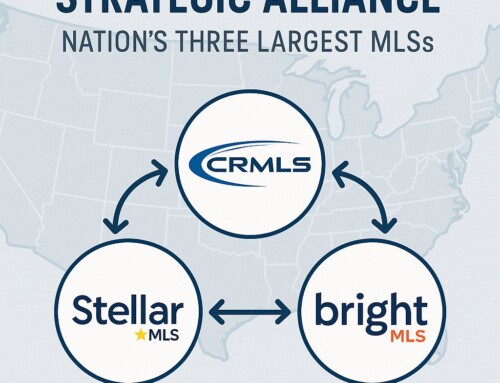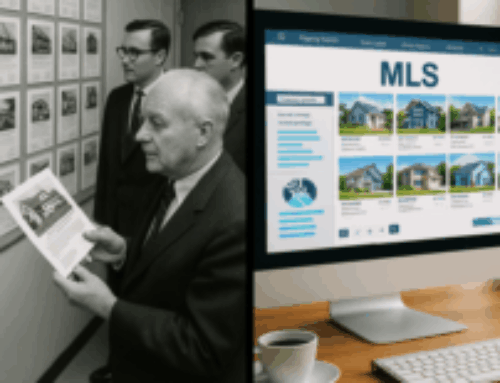
An inside look with the Workgroup’s Chair, Rob Larson of CRMLS
By Jeremy Crawford
He’s at the helm of what has been hailed as real estate’s “Rosetta Stone.” Rob Larson, the Chief Information Officer of the nation’s largest Multiple Listing Service, CRMLS, chairs the RESO Data Dictionary Workgroup. The Workgroup is responsible for the real estate industry’s new and growing set of property data listing standards, which is quickly approaching the NAR mandated deadline of January 1, 2016 for Data Dictionary adoption.
Larson and CRMLS are testaments to the old adage “Practice what you preach.” At CRMLS, Rob has lead a holistic Data Dictionary effort – called Data Dictionary Plus – that not only deploys the required Data Dictionary core property data fields (161), but CRMLS is converting all fields whose definition matches an entry in the Data Dictionary. Larson also notes there are additional fields in his MLS system that are not in the RESO Dictionary, but is renaming those fields to match the Data Dictionary naming conventions. Following the naming convention on non-required fields is Larson’s “Plus”, but it is not a RESO requirement.
RESO Data Dictionary Certification has several levels of Certification. Today, the focus is on the mandate – Core Certification – yet MLS firms also can achieve Bronze, Silver, Gold and the highest level, Platinum Certification. Once CRMLS is Data Dictionary certified, they will have leapfrogged to achieve Platinum Certification, joining MetroList in Sacramento, which is already Platinum Certified. Though Larson admits, “implementing the platinum level dictionary not only in RETS, but all the way back into our MLS system will be a challenge.”
“When I started the Dictionary, I included the concept of adopting the Dictionary, not just in the RETS interface, but in the MLS Input, Search and Display as well. From the get-go I felt this was the right course of action because I believe in a consistent experience for my members and their clients,” Larson says.
He explains, “Application vendors who use RETS are inevitably going to have their search and display mirror the fields they see coming from RETS. By taking the unrequired step of adopting the Dictionary in your MLS system, you’ll standardize the members experience as they use the variety of software options available today.”
Larson points to the fact that MLS members are accessing MLS data in a lot more places than just through their MLS system; using an array of third party products from apps to IDX to VOWs. Standardizing the data at the intersection for all of these uses is the RESO Data Dictionary. That’s what helps to deliver a common experience for members.
Larson explains, this approach also “helps members to relate to the consumer looking at RETS driven public sites.”
Key benefits: Risk Management and Improved Innovation
Larson points to Risk Management as one of the big benefits of the Data Dictionary. “At the end of the day, when you have a clear definition on something, you reduce risk.”
Risk Management, Larson notes, is part of the core focus of the RESO Data Dictionary Workgroup. “Our main mission is to create – at minimum – a translation point of MLS systems so they can better define the data they share with other MLSs and products. This translation mitigates risk of error, increases the speed of delivery, and reduces the cost of delivery,” he says.
Larson likes to recall an early discussion he had with a colleague on which word they should use to describe a particular window: jalousie or louver? “We’re trying to explain those differences and get everyone on the same page as it is more than just semantics; it’s part of the long term version of the Data Dictionary.”
The impact, he promises, will be tremendously positive across the real estate industry. “Instead of a developer building and putting a lot of work in something that can only be used by only 1,000 users, they can turn the situation into something where they can put a single level of effort that can be used by 1,000,000,” he explains. “By reducing the costs, time and risk, we open the way for increased innovation and lower cost options for our members and promote a healthy competitive environment.”
Certification advice
Larson has some advice for those who are starting the RESO Certification process as the deadline approaches.
“The main thing is to keep your eye on the risk of erroneous mapping,” Larson explains. He suggests the key is to “spend the time to review terms, even if you think they are obvious.” Making sure the MLS’s definition is understood/shared by their members is critical, “so talk to your membership: Get your practitioners to take time to look at the definitions; that is a really good thing to invest in.”
“The one thing about definitions,” Larson says, “what member may think a field means could be interpreted differently by the next member. The goal is to understand the different ways these things can be interpreted and to take the subjective and make it objective. “
Change is challenging for members, Larson admits, but “having good relationships with your members” can mitigate angst and concern. It’s something he enjoys at CRMLS: “We have good interaction at CRMLS through our suggestion box, committee structure, associations and board; working with people who are actively using the MLS applications. Having that touch is important.”
If you decide to go the extra mile and update your MLS Input Forms; and you don’t get members involved throughout the process, Larson points out, when changes are made to the metadata, the reaction is likely to be negative, asking, “Who moved my cheese?”
Larson suggested looking not only for member input, but specifically active members as they understand the value of what you provide and they understand the business needs. This will in turn have positive result for all members.
Larson offers kudos to the efforts of several of the largest MLS technology firms, including Core Logic, Black Knight, FBS, for putting in place an approach for meeting the RESO Data Dictionary standards in a way “that will bring a large number of MLSs up to the plate in a rapid manner.”
Targeting more Business-side participation via the RESO Data Dictionary Wiki
The future of the RESO Data Dictionary Workgroup is focused on drawing in more participation from the business side, Larson says. “We are targeting people who are on the business side of the MLS and products that use the MLS data,” he says. Their involvement can help make sure the Dictionary is robust and accurately represents the thinking of your average MLS member.
The added benefit, and one that Larson himself has experienced, is what happens through one’s participation in RESO. “You learn so much hanging out with these folks and understanding their challenges,” he says. “It continues to be a core part of what we do at RESO: work together for the benefit of our industry.”
What’s next for the RESO Data Dictionary? Larson believes as the industry embraces the dictionary, more work will be needed to grow and refine our definitions.
As an example of growth, “We have recently added a way of working in teams into the Data Dictionary. Other groups of definitions for tax, transaction, leads, and the activity a listing gets on the internet are future possibilities.”
Larson says, “As we look to refine the dictionary, RESO is looking beyond our current membership to those MLSs and product vendors who are not yet part of RESO. We very much want their participation to help ensure the dictionary is hitting the mark”.
It’s important, says Larson, to understand that the Data Dictionary is not a “one trick” project. Larson sees collaboration as a key to make its standards even more encompassing. He’s particularly excited about RESO working with the Department of Energy and the Building Energy Data Exchange Specification (BEDES).
“We need to help appraisers and lenders with information about high performing (efficient) homes,” and sees RESO and his Data Dictionary Workgroup as a core part of that solution. “If the DoE’s initiative can bring that data to our industry, the true value of a high efficiency home will be more consistently represented in the listing, the listing broker will have less risk identifying efficiencies and appraisers will have an easier time communicating that value to the lenders. If a high efficiency home sells for more and sells faster, more folks will be enticed to buy or upgrade to a high performing home.”
As for all the work that will be done between now and the end of the year by MLSs and their technology vendors, Larson is optimistic. “I believe all the efforts underway will put us in a strong place in the first quarter next year,” he said.
For members who want more information about joining the RESO Data Dictionary Workgroup or more information about joining RESO, go to www.reso.org or email info@reso.org.




